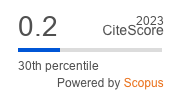Intelecto e inmortalidad en Aristóteles, Alejandro de Afrodisias y Tomás de Aquino
DOI:
https://doi.org/10.19272/202200702005Parole chiave:
Agere sequitur esse, Agent intellect, Immortality, Aristotle, Alexander of Aphrodisias, AquinasAbstract
Given that the intellect is capable of knowing the intelligible and, thus, is immaterial, and taken into consideration the principle that agere sequitur esse, philosophers have discussed for centuries whether the soul is immortal. Aristotle stresses that if the soul is capable of operating without the body, it will be capable of being without it. However, Alexander of Aphrodisias and Aquinas differ deeply here. For Alexander, the material intellect operates through the body and only achieves the intelligible aided by the agent intellect, which comes from outside. Therefore, when the body corrupts, both its matter and soul are no more. For Aquinas, every being must completely possess the formal principles of its operations, and, as the intellect has an operation in which it does not communicate with the body, the human intellect is not destroyed by death.



